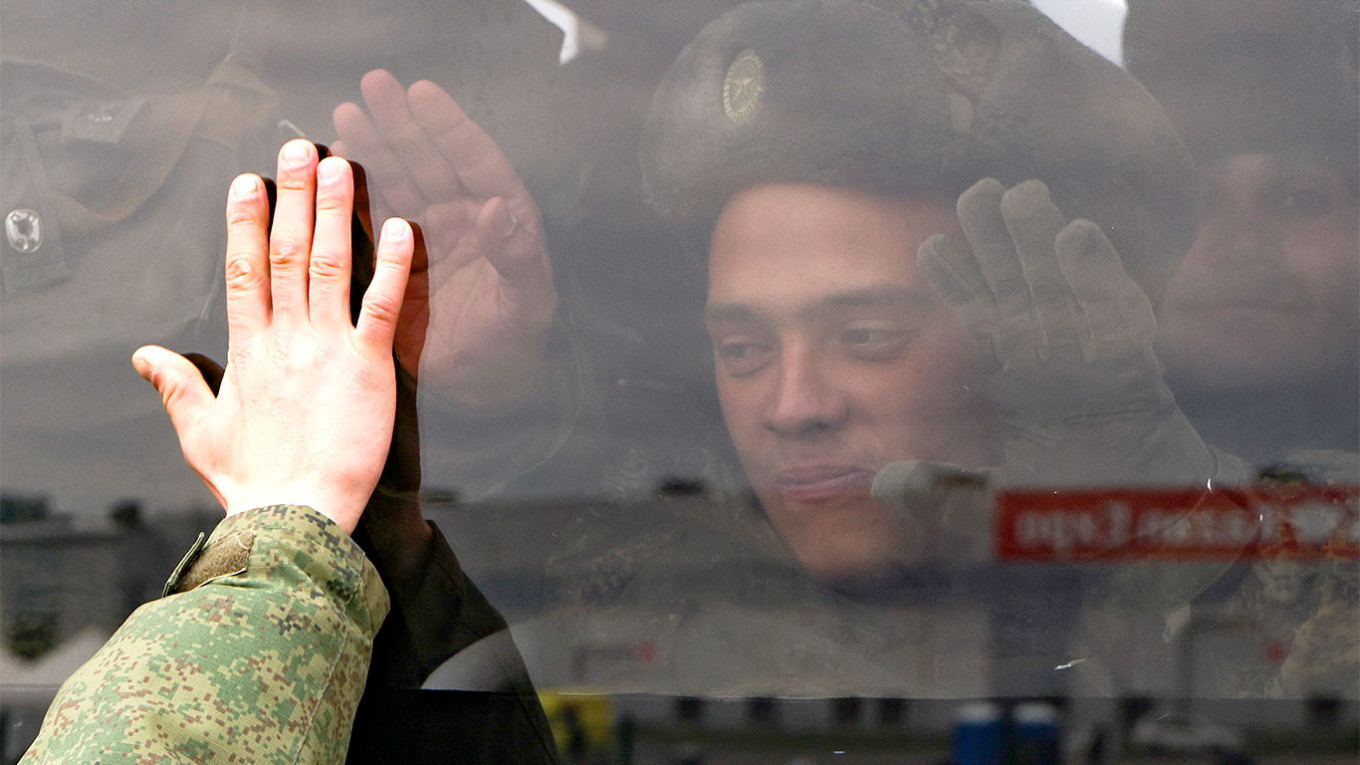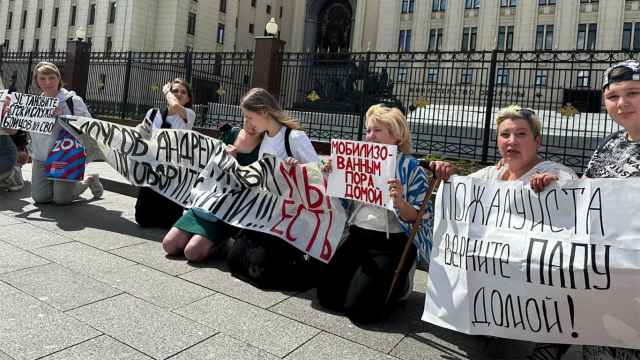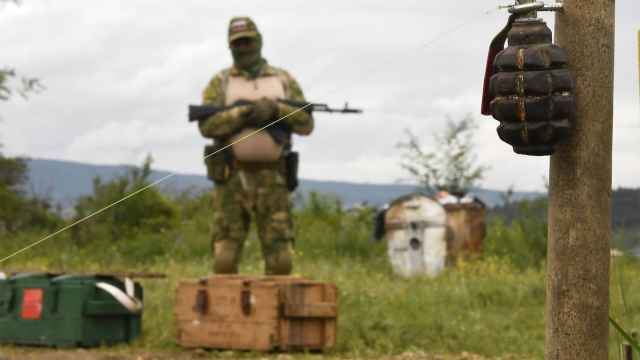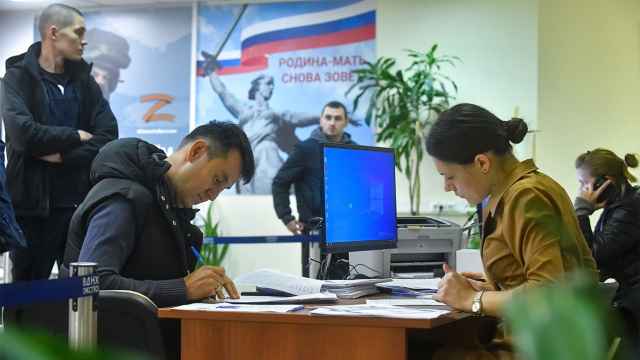As the two-year anniversary of the war approaches, the Russian and Ukrainian armies are facing a common set of problems. The supply of volunteers willing to sign up to fight is drying up. Soldiers are tired of being on the front lines for too long, their female relatives are demanding a limit to the length of their military service. Right now Ukraine has an advantage over Russia in this regard as its people remain more resolutely behind continuing its fight than its opponent. But the window of opportunity to use that advantage is closing.
According to Bloomberg, the Verkhovna Rada has approved a plan that would allow the Ukrainian army to mobilize an additional 140,000 men. But it has been waiting for President Volodymyr Zelensky's approval since June. Zelensky fears that approving the plan could increase citizens' desire for peace at any cost, hampering the war effort.
Bloomberg also raises concerns that Russia is covertly mobilizing the entire country, whose population is over three times larger than Ukraine’s. They cite statements from ex-president Dmitry Medvedev that Russia has managed to recruit more than 385,000 contracted soldiers (on Dec. 1, he claimed the number was 452,000).
However, the figures in the report are obviously inflated. Russian journalist Michael Naki believes that the official volunteer recruitment figures can only make sense if we were to interpret “contract soldiers” as troops who were already enlisted and forced to sign a contract. He estimates the actual number of these soldiers is far smaller at 80,000-130,000.
His assessment is supported by the political anthropologist Jeremy Morris, who notes that the media are forced to rely on figures from Russian authorities, which are impossible to verify. Moreover, the Russian authorities themselves are not aware of the true state of affairs. In authoritarian systems, it is common practice to produce figures that are "good enough" to please their superiors, but have little to do with reality.
In reality, anyone with enough social, economic, or educational capital likely evaded mobilization. Because of this, the Russian authorities were forced to draw from a population of outcasts. Important Stories cites an order from the presidential envoy to the Central Federal District, which specifies 22 categories of the population to be prioritized for mobilization including migrants, debtors, bankrupts, the unemployed and people with criminal records.
These socially isolated people are the easiest to forcibly enlist since they lack support networks that could be used to avoid mobilization. But they also make the most unreliable soldiers who are the most prone to desertion. It is no surprise that Storm Z detachment, made up of convicts, has been so prone to desertion.
Russia also cannot use its threefold superiority in population because the government is trying to convince its citizens that the war will not affect them. The Russian authorities are probably aware that Russians are not eager to take part in the fighting themselves. Morris was surprised to find widespread disapproval among his respondents for those who chose to volunteer for the war. When the state was forced to involve citizens in the war by force during mobilization, propaganda tried to downplay their fears by convincing them that only 1% of those eligible would be mobilized.
Nevertheless, mobilization has irreparably damaged support for the invasion of Ukraine among Russians. According to Russian Field, the percentage of the population in favor of continuing the war has fallen below 50%, while those in favor of negotiating for peace have grown to 46%.
Throughout 2023, however, all indicators of support for the war declined, by October falling even further than they were even during mobilization. The number of Russians considered to be core supporters of the war has grown smaller than the core of those opposed.
Ukraine has also seen an increase in the number of people who want to open up peace talks with Moscow, even if it would mean giving up occupied territories. But at the same time, confidence in the army remains at the record 95% achieved at the beginning of the war. The strength and stability of these figures over the past year tell a very different story to what is happening in Russia. Data from the Levada Center shows that trust in the state security agencies, the army, and the president has fallen.
Russia will hold presidential elections in March 2024. The results are a foregone conclusion — Kremlin spokesman Dmitry Peskov said that Vladimir Putin will be re-elected president with 90% of the vote. Nevertheless, this does not mean that the elections do not matter to the Kremlin. In electoral autocracies, elections are used to demonstrate a dictator’s popular support to citizens, elites and outsiders. In 2024, the election will also be used to show the Russian people remain committed to the war.
However, there has to be some portion of the population that supports Putin so that the government can claim it is indeed so widespread. For this purpose, before the elections, it must win over citizens by flooding them with good news about fulfilled promises and national projects being completed. If the opposition can demonstrate during the election period that it is gaining strength and the dictator is in retreat, it increases the likelihood of a coup in the first six months to a year after the election.
Therefore, a new mobilization before the elections is almost completely ruled out, since the authorities are trying to reduce the risk of social tension. This opens a window of strategic opportunity for Ukraine. Kyiv can afford to make unpopular decisions because the public still supports continuing to war to victory. Furthermore, because elections cannot be held during a period of martial law, Zelensky does not need to worry about damage to his re-election prospects.
Any Ukrainian breakthrough during the election period would be especially painful for Putin. Russia would be unable to mobilize troops in response, and a breakthrough on the front could spell disaster for Putin. Even Ukraine’s domestic agenda politics could increase tensions within Russia. Ukraine's Verkhovna Rada is discussing a proposal to demobilize troops who have been fighting for two years.
The West can help not only by sending Ukraine weapons, but by also supporting the growing number of Russian defectors. If a safe haven beyond the Kremlin’s reach could be created, it would reduce the number of Russian soldiers on the battlefield. It could go a step further by helping Russian deserters leave the front line, and perhaps Ukraine altogether.
After the elections, Putin’s hands will no longer be tied and he will almost certainly start a new wave of mobilization. He will no longer need to care about public opinion, which means he can draft almost anyone he wants. So Ukraine should act now to stay ahead of the curve, preparing for the expansion and renewal of its military. This will have to be done anyway, given the fact that the end of the war is not yet in sight.
A Message from The Moscow Times:
Dear readers,
We are facing unprecedented challenges. Russia's Prosecutor General's Office has designated The Moscow Times as an "undesirable" organization, criminalizing our work and putting our staff at risk of prosecution. This follows our earlier unjust labeling as a "foreign agent."
These actions are direct attempts to silence independent journalism in Russia. The authorities claim our work "discredits the decisions of the Russian leadership." We see things differently: we strive to provide accurate, unbiased reporting on Russia.
We, the journalists of The Moscow Times, refuse to be silenced. But to continue our work, we need your help.
Your support, no matter how small, makes a world of difference. If you can, please support us monthly starting from just $2. It's quick to set up, and every contribution makes a significant impact.
By supporting The Moscow Times, you're defending open, independent journalism in the face of repression. Thank you for standing with us.
Remind me later.






